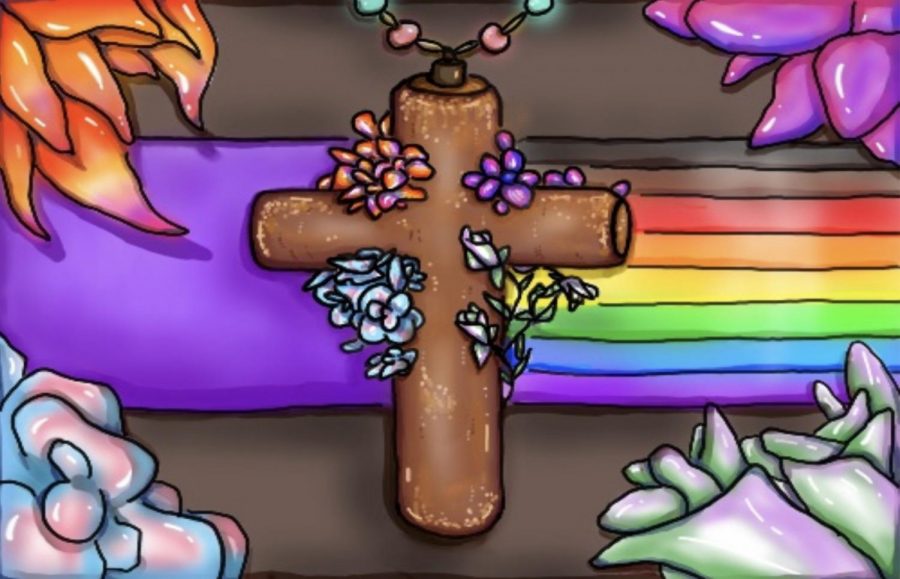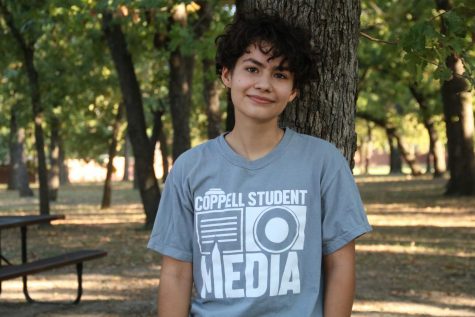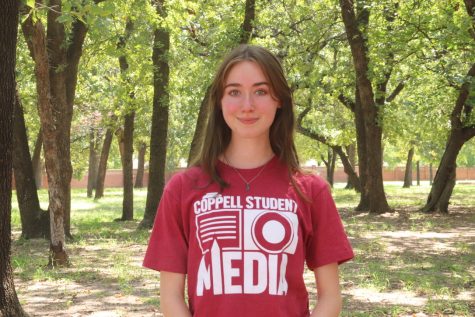LGBT community welcomed into religious spaces by Pope
Pope Francis declares his support of the LGBT community after years of controversy in the church. The Sidekick staff writer Mel Venegas shares her opinion on LGBT youth turning from religion after years of being taught to change their identity in order to fall in line with a set of beliefs.
October 28, 2020
Children are flowers, unique and a blessing to their families, regardless of their identities.
This sentiment was shared by Pope Francis on Sept. 16 after meeting with an Italian LGBT Christian group. In this meeting, he preached love and acceptance, reassuring children and parents alike that, “the church loves [their] children as they are because they are children of God.”
Since assuming his position as Pope in 2013, he has been obvious about his belief that being gay and a good Christian are not mutually exclusive; no matter what type of flowers you are, you belong in God’s garden as much as anyone else.
Despite growing support from religious communities, people in the LGBT community tend to show less support for religious institutions than their straight, cisgender peers. As a whole, LGBT individuals also have significantly more people that do not identify with any religion despite consisting of only 4.5% of the population.
Though the decrease in religion is more apparent in younger generations, being LGBT can affect how you are treated in religious spaces and can make it harder to feel a sense of community.
“It’s very common for kids to struggle with wanting to come out to their parents or feeling supported,” CHS LOTE teacher Emily Holmes said. “And a lot of times that does come back to religion or their parents’ beliefs.”
Anti-LGBT sentiment is not exclusive to religious groups. Global opinion has sided against LGBT people for decades and it can be a struggle to find sympathy depending on location. Countries such as Russia and Egypt still criminalize being gay, with it being declared a mental illness for more than two decades in Russia, and expressing being gay allowing for up to three years in jail and thousands in fines. This is mild in comparison to countries such as Sudan, where being gay can lead to a life spent in jail.
The United States, however, is different with same-sex marriage legalized in 2015, though conversion therapy and other practices that target LGBT individuals are still legal in some states.
Conversion therapy is legal in most states and is used by parents or other authority figures to attempt to change the sexuality, gender or gender expression of individuals under their influence. Though many variations today do not include physical punishment, the practice has been around since the 1800s in many forms. In the coming years, around 16,000 minors are expected to undergo conversion therapy despite its growing unpopularity and the push to make it illegal in all 50 states.
With vocal pushback from government and religious communities, being gay has always been a struggle with the risk it brings; though you may no longer have to fear losing your job or being sentenced with homosexuality, there is still the change of rejection from not only family and close friends, but from society and role models as well.
Despite the lack of an impact on others, this treatment makes it easy to feel othered, if not somewhat revolted, for something as harmless as who you love or how you want to be viewed, especially when you feel alone in that. Even passing comments or well intentioned jokes can feel isolating when all it does is point out why you are treated differently, and can drive people out to seek spaces where there are others like them.
“It’s going to take more and more people coming out in support of people in the LGBT community” Holmes said. “It takes time too, because some people are going to have to completely reframe how they view the world and how they view any people that they interact with and that’s a process.”
Public figures having the courage to come forward in support for the LGBT community is a welcomed change after the, “don’t ask, don’t tell” societal policy of the past. This is a step forward to create a world where breaking the taboo doesn’t spell the end of a career. It makes a difference. Those part of the LGBT community – especially youths stuck in unfortunate situations – get the knowledge they are seen and accepted for who they are by someone they might look up to, and people questioning their identity do not feel the need to suppress who they are.
“Things are talked about [more]; it’s something that you’re able to discuss, whereas 20 years ago when I was a teenager, it wasn’t something people even talked about,” Holmes said. “So I think [open discussion] helps too, it’s not a taboo subject like it used to be.”
Though increased discussion has helped people of all ages see themselves and the people they look up to and cemented they too have a place in the world like any other, being welcomed from communities that already cared for you can mean the world when you feel alone.
Just like any other flower, with care we bloom.
Follow @melllvenegas and @CHSCampusNews on Twitter.












